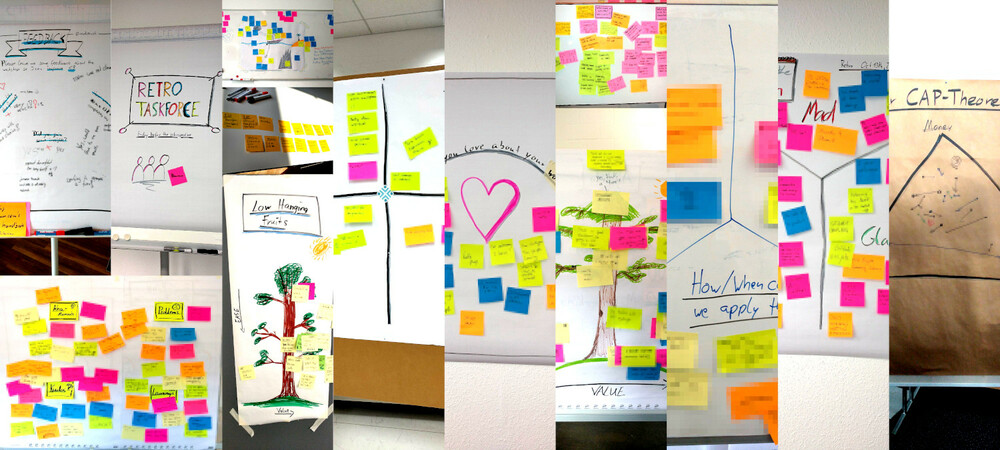From the Toolbox: Everything needs a retrospective

We spend most of our time at work collaborating with people. Everything, from mentoring someone, to co-creating great products and engineering cultures involves more than just a single individual. But, when reflecting on how we can continuously improve, understanding exactly what works and what doesn’t can be tricky. That’s why, in each collaboration, I strive to hold a retrospective right at the end to transform the way we relate to each other and to improve our ways of working together.
Context
You’re in a meeting, a mentoring or a pairing session or find yourself in one of any collaborative situations.
You want to understand how the meeting went down and share your own thoughts to meet one common goal - to improve each and every following collaboration.
In situations where you are mentoring, you want to hone in on how your methods are received and if you can tweak anything to improve the learning experience for your mentee.
Reasoning
Retrospectives are an established format meant to provide a space to step outside of a process and reflect about its inner workings on a meta-level.
Establishing such a feedback channel gives everyone the opportunity to voice their feelings and concerns towards a meeting and thus gives you the chance to improve every future encounter.
Just as unheard frustrations can turn into conflicts, positive feedback can easily fall under the table as people rush out of a meeting. You avoid misunderstandings if you give people a chance to voice their concerns right after a meeting, and by that, you’ll avoid all the frustration that would otherwise build up due to miscommunication right away.
Pattern
Plan, announce and account for a short 5-minute retrospective at the end of your collaborations.
If you just want to gather some quick feedback, asking every attendee to answer a short question will already provide you with valuable insights. This question might be:
- Do you feel like this was time well spent? If not, what would you change?
- Do you feel that you leave this meeting well informed?
- Do you feel like all your questions where properly addressed?
If you got some more time and Post-It’s, ask everyone to take a minute and write down their observations, feelings and of course their kudos, e.g. with the 4 Ls method.
- What I Loved
- What I Learned
- What I Lacked
- What I Longed For
Let them quickly share their insights afterwards. Make sure to not stretch the time-box though!
Equally in a mentoring situation, ask constructive questions that accommodate feedback on how your mentoring was perceived - it’s about the mentee’s learning experience after all!
- Is there anything we can change next time to improve this for you?
- How was the pace? Did we take enough breaks?
I have found again and again that this is time well spent. Not only do you catch misunderstandings and issues before they build up, you also gain valuable insights that will improve every future collaboration. I hope you’ll find this working for you too.
–
From the Toolbox is a compilation of small practices, tools and life-hacks I collected over the years.